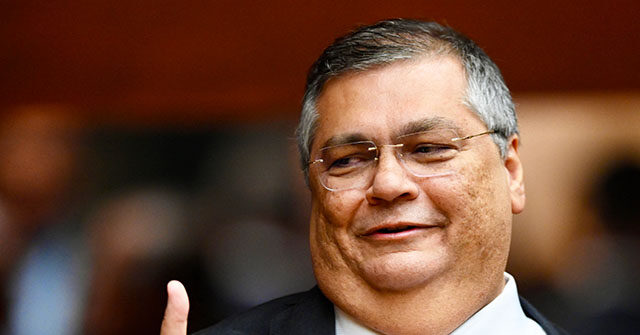Bruno Aiub, a Brazilian political podcaster known as “Monark,” has been sentenced to one year and two months in prison for slandering Supreme Federal Tribunal (STF) Minister Flavio Dino. The offensive remarks were made during two videos posted on the platform Rumble, where Aiub directed insults at Dino, referring to him as a “fatty” and questioning his capabilities as a leader. These comments followed Dino’s tenure as justice minister under President Luiz Inácio Lula da Silva, during which he advocated for the regulation of social media platforms in response to violent incidents, including deadly school attacks across Brazil in early 2023.
The legal confrontation began when Dino sued Aiub for slander and defamation over the derogatory content shared in the videos, which aired between May and June 2023. One notable context for Aiub’s remarks was a meeting in April 2023, where Dino criticized social media for spreading hate speech after a violent attack on a kindergarten in Blumenau, Santa Catarina, where multiple children were killed. Aiub’s response was notably inflammatory, suggesting that Dino’s calls for regulation were attempts to suppress freedom of speech, labeling the minister as “perverse” and a potential oppressor.
The Brazilian judiciary found Aiub guilty of slander on October 3, determining that he had made a clear and intentional effort to tarnish Dino’s reputation. Federal Judge Maria Isabel do Prado underscored the significance of social media in amplifying Aiub’s disparaging remarks and highlighted that his statements contained deliberate attempts to cast Dino in a negative light. Though the court dismissed outright defamation charges, it affirmed that Aiub’s language was a clear attempt to belittle the former justice minister, categorizing it as a violation of Dino’s honor.
The ruling emphasized the balance between freedom of expression and the protection of individual rights, especially concerning personal honor. The judge acknowledged the importance of free speech but stressed that it has limitations in cases of personal defamation or slander. Consequently, Aiub was sentenced to serve prison time in a “semi-open regime” and ordered to pay 50,000 Brazilian reais (approximately $8,900) in moral damages to Dino.
Interestingly, before facing Aiub’s lawsuit, Dino himself had been involved in a similar controversy shortly after taking office. In January 2023, he demanded public retractions from two radio announcers who had labeled him with derogatory terms. This incident highlighted the existing tensions between public figures and the scrutiny they face, particularly as Dino previously held ties with leftist politics and had transitioned into a more prominent role within the STF, which further placed him under public and media scrutiny.
Moreover, the issue of body shaming and public humor involving Dino’s weight has been rampant, even penetrating discussions among high-ranking officials. President Lula has publicly joked about Dino’s obesity during official meetings, creating a culture that not only trivializes the minister’s image but also reflects a broader issue of personal attacks prevalent in the political landscape. These instances of humor combined with slander point to the complexities of political discourse in Brazil, evoking questions about the line between acceptable critique and harmful insult in public life.

